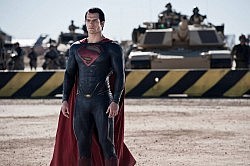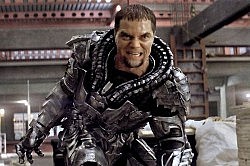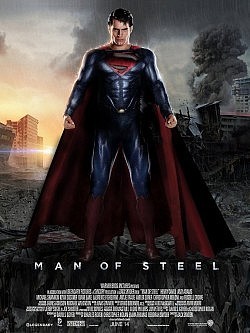The Year: 2013.
The Planet: Earth.
The Epidemic: Hollywood continues to eat itself alive with remakes, becoming so violently pervasive that the more-palatable nom de guerre “reboot” has been aggressively adopted.
Reboots generally transpire in the once-fledgling superhero genre: when a franchise grows stale — or worse, gets off to a financially disastrous false start — it is swiftly given a complete whitewash to eradicate any former memories of its inferior incarnations.
There are successful reboots (J.J. Abrams’ deliriously entertaining Star Trek resurrection) and not-so-successful reboots (last summer’s all-but-ignored The Amazing Spider-man; no, I didn’t watch it either).
It’s easy to be cynical about the intentions behind them, but it’s paramount to remember that this ensures the survival of the last bastion of American pop folklore. Our kids can grow up loving the same characters that we did, and our parents before us.
Non-print depictions of Superman have permeated all facets of the media since the mid-forties, and his latest outing — despite the dazzling computer effects — remains fairly traditional. The tired old hat-trick of a pair of glasses and a tie proves to still be a crowd pleaser as well as the world’s least believable disguise. Enter equally loved and loathed director Zach Snyder.
Snyder has a dubious track record: somewhat successfully adapting Frank Miller’s 300 (it helps when the source is equally as vapid as the resulting production) and disastrously mounting Alan Moore’s all-encompassing Watchmen — a graphic novel that is, to be fair, far too intelligent and labyrinthine to ever be condensed into a feature film. No doubt the studio had him on a tight leash for the feverishly anticipated Man of Steel.

The stunning and creative action quickly devolves into sub-Dune politics and a raft of distinguished looking actors in silly costumes barking naff dialogue at one another.
Kevin Costner and Diane Lane are inspired choices to play the all-American cornfield Kansas family who adopt the alien babe, Kal-El/Clark, as their own.
Henry Cavill (British) lends a sturdy and impossibly handsome presence to the underwritten title role.

The film does strike some successful chords: addressing the sensory differences between humanoid species to often startling effect, and depicting the angst-ridden youth of Clark Kent as a tormented and bullied outsider who cannot strike back against his immature oppressors for fear of destroying them and revealing his precious gifts.
It is at these points that the film feels visceral and tangible. The ensuing melees and sense of destined empowerment feel severely tacked on.

And this is where the film gets boring — though it’s refreshing to see a depiction that embraces Superman’s messianic qualities, conjured in a time of darkness when America so sorely needed a penultimate super soldier to right the seemingly insurmountable wrongs of the world.
Sound familiar? It is perhaps pushed a shade too far, with the narrative embodiment of the Father (Costner), the Son (Cavill) and the Holy Ghost (Russell Crowe, as Kal’s alien birth father) established in one montage too many.

The film cannot manage the courage to casually refer to our superior protagonist as “Superman”. Neigh, the name itself is treated as some sort of post-modern kryptonite (also strangely absent) that would instantly strip the endeavour of the chops it so evidently longs for. It is uttered but once — and with a practical wink to the audience as if to say “Just foolin’!”.
Humourless, sexless, and absolutely riddled with glaring product placements over the course of its bloated 143 minutes (why aren’t mainstream films 90 minutes anymore?), Man of Steel is desperate to be taken seriously.
It didn’t make a believer out of me.



























